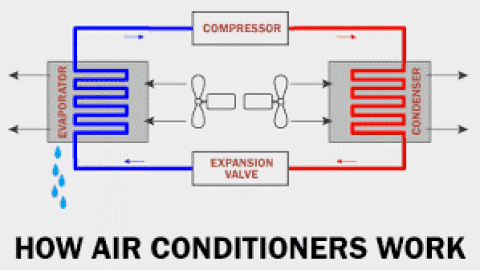It’s not an exaggeration to say the central AC compressor is the most important component of any AC unit. Without it, your air conditioner simply doesn’t work, and having a working AC is vital in San Marcos, TX and the surrounding areas.
Perhaps you’ve heard other HVAC companies recommend a system replacement because compressor repairs are impossible and expensive, and you probably thought it seemed like an upsell. But in the case of AC compressors, those contractors are telling the truth.
To help you understand the importance of your compressor, we’ll answer four common questions:
- How do air conditioners work?
- What does a central air conditioner compressor do?
- Why is my compressor so difficult to repair?
- How do I know if my compressor is broken?
All in all, your AC compressor is a complex part and vital for proper performance and efficiency. So it just makes sense to learn as much about it as possible...
Is your AC compressor malfunctioning?
Call Reliable Air to get a technician dispatched ASAP. We’ll review your AC and walk you through all your repair and replacement options, so we can empower you to make the best decision for your household. Give us a call at (512) 580-8837 to schedule an appointment today! Schedule Service
How Do ACs Work?

Like most Texas homeowners, you probably use your AC almost every day. But how does it work exactly? ACs work by absorbing heat inside your home and dumping it outside using a chemical agent called refrigerant.
Your AC unit consists of two parts: an indoor unit and an outdoor unit. These two units connect via copper tubing filled with the refrigerant.
Liquid refrigerant flows through the copper tubing to the indoor unit, circulating through the evaporator coil. It absorbs the warm air from inside your home, and the heat transforms the refrigerant into a gas.
The gas refrigerant then travels through the copper tubing to the outdoor unit. At this point, the refrigerant releases the heat it has been carrying outdoors through your AC’s condenser coils. The agent then turns back into a liquid, traveling back to your indoor unit to absorb more heat until it cools your home to your desired temperature.
You’re probably wondering where the compressor is in this process. It is actually involved in every component of the AC cooling process. We'll cover its function next.
What Does a Central AC Compressor Do?

How air conditioners work with a compressor / Source: Department of Energy
Your compressor is the pump that pushes the refrigerant through your AC system. The outdoor unit houses your compressor. Think of it as the heart of your AC.
Without a compressor, the refrigerant could not travel through your AC at all, and your house could not get cooled. A malfunctioning compressor means your home may not adequately cool down; meanwhile, a completely broken one means the AC won't work at all.
Repairing your AC compressor is similar to performing heart surgery. The heart may only be one small organ in the body, but fixing it is incredibly technical and difficult.
Why Is My Compressor So Difficult To Repair?

Now you know how important your AC compressor is, let's cover why it's complicated to fix. Unfortunately, most AC compressors have hermetic seals, so they are impossible for HVAC technicians to repair. Replacing a compressor is typically less cost-effective than replacing the total AC due to the time and effort it would take a tech to fix, which is on par with a full system replacement.
A hermetic seal means all the compressor's components are within an airtight metal container that only the AC manufacturer can open. The purpose of it is so the compressor can’t leak refrigerant, which is toxic. Inhaling any refrigerant can cause severe respiratory problems.
How Do I Know if My Compressor is Broken?
If your AC stops working as well as it used to, don’t panic! An HVAC technician can help you determine if the problem is with your compressor. Some warning signs to look out for include:
- AC blowing warm air
- Little to no airflow coming from your AC
- Strange clicking noises around your outdoor AC unit
- Frequent tripping of your circuit breaker
You have two options with a broken AC compressor: replace the compressor or replace your AC. Replacing your AC compressor might be worthwhile if you have a reasonably new AC unit or if it costs less than 50% of a new system installation.
AC systems typically last between 8–10 years in Texas. If your AC unit is getting close to that range or has other problems, a complete system replacement will be more cost-effective in the long run.
Don’t Wait on AC Problems—Call Reliable Air for 5-Star Service in San Marcos
Trust your HVAC system to Reliable Air’s service technicians, who will be on time, highly trained, and, well, reliable! We have over 25 years of experience putting our customers ahead of profits and would love to add you to our list of satisfied customers.
With our same-day service and convenient appointment windows, you can schedule your AC repair or installation when it works best for you.
Call us at (512) 580-8837 to schedule service with 100% satisfaction—guaranteed. Schedule Service

